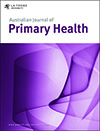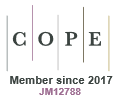PY23217Perceptions of general practitioners towards managing dental presentations in Australia: a qualitative study
Patients with dental pain often seek treatment from general practitioners (GPs), even though the problem often requires dental treatment rather than antibiotics and/or pain relief medications. This study looked at GPs’ management of patients with dental problems, and identified barriers as to why patients would see a GP instead of a dentist. Understanding these reasons will help develop interventions to better educate patients in oral health, and provide better access to dental care to patients with oral conditions.
PY23217 Abstract | PY23217 Full Text | PY23217PDF (366 KB) | PY23217Supplementary Material (869 KB) Open Access Article





